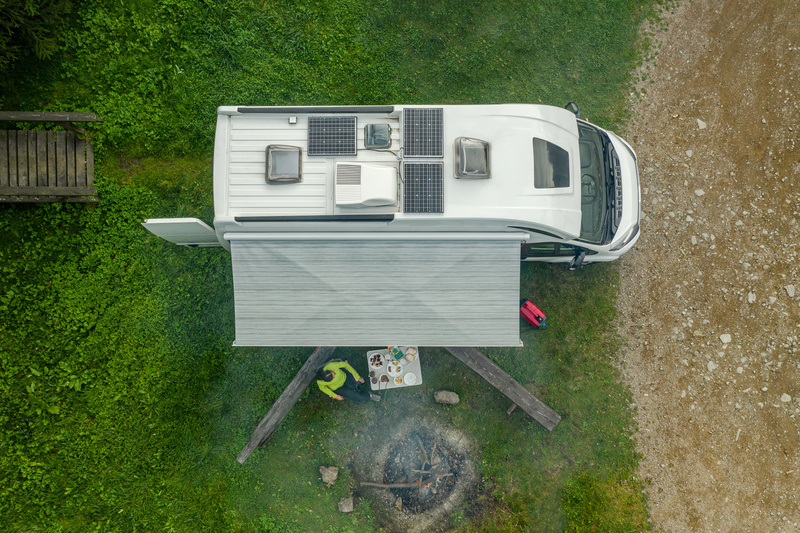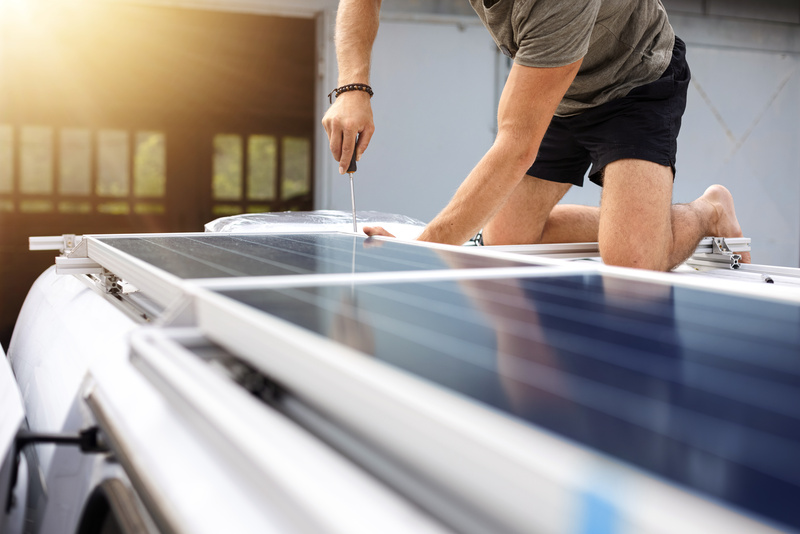RV Tips for Beginners
RV Tips for First-Time Campers
Camping is an exciting way to get outside, disconnect from the digital world, and immerse yourself in nature. If you’ve never been camping before, the idea of packing up for a trip to the great outdoors can be a little intimidating. Though it can be overwhelming if you don’t know what to expect or how to prepare, going camping for the first time can be a rewarding experience. To help you have a successful first-time RV camping trip, here are some RV tips to keep in mind.
Plan Ahead
Before embarking on your RV camping trip, make sure to do your research and plan ahead. This includes choosing your destination, booking your campsite, and mapping out your route. Check the weather forecast and pack accordingly. There are plenty of online resources and apps you can check for RV tips and other advice to plan your trip.
Choose the Right RV
It’s essential to choose the right RV for you and your family so you can have a comfortable and enjoyable trip. Make sure to consider the size of your group, your budget, and what’s most important to you when you select your RV. At Juniata Valley RV, we have new RVs for sale from top brands like Winnebago and Aliner. Our team can also help with RV tips or answer any questions you have when you visit our dealership!

Pack Smart
Once you’ve chosen your destination, it’s time to plan what you need to pack. Make a list of the gear and equipment you’ll need, and check it off as you pack. Make sure to include essentials like food, toiletries, a first-aid kit, and weather-appropriate clothing.
It’s important to dress for the weather and the activities you’ll be doing. Bring layers, as temperatures can fluctuate throughout the day and night. Make sure to wear appropriate footwear for hiking and walking on uneven terrain. And be sure to bring enough food and water for your entire trip, or research places to eat near your chosen campground.
Stay Safe
While camping can be a fun and relaxing experience, it’s important to be prepared and stay safe. Make sure to bring a first-aid kit, insect repellent, and sun protection. Follow all safety guidelines and regulations at the campsite. Accidents can happen, so one of our top RV tips is to ensure you have a properly stocked first-aid kit and other emergency essentials. This should include bandages, antiseptic, pain relievers, and any necessary prescription medications.
Get Familiar with Your RV
If you’re not used to driving or parking an RV, make sure to practice before you hit the road. You don’t want to be caught off guard by tight turns or narrow paths. It’s also important to know the height of your RV and be aware of low bridges or overpasses.
Aside from driving, you should take time to familiarize yourself with your RV’s functions and features. This includes understanding how to operate the RV’s systems, like the water and electrical, and how to hook up to the campsite’s utilities.
Choose the Right Campsite
One of the most important RV tips for first-time RVers is to take the time to research campgrounds and choose the right site. Consider the amenities you’ll need, such as bathrooms or potable water, as well as the type of camping experience you want to have. Do you want to camp in a quiet area or by the campground facilities? Would you prefer a more rustic or developed campsite?
Different campgrounds and campsites will also have different rules about which campers can be accommodated. Campsites will often have restrictions on what size RV they can accommodate. Additionally, some campgrounds have restrictions (like age of the RV) on which campers can be brought to their properties.
Respect the Campground and Local Wildlife
When you arrive at your campsite, make sure to read and follow the campground’s rules. This includes respecting quiet hours, keeping your campsite clean, and properly disposing of waste.
As a camper, you’re a guest in nature. Respect the environment by leaving no trace of your presence. This means packing up all trash and avoiding damaging plants or wildlife. Use designated campfire areas and follow fire safety rules.

Enjoy the Experience
Most importantly, have fun! RV camping is a great way to experience the great outdoors and spend time with family and friends. Take advantage of the opportunity to unplug and relax. Embrace the camping experience. Try new activities and take time to explore the outdoors! Leave your electronic devices behind and take the opportunity to disconnect and recharge.
Going on an RV camping trip for the first time can be a little intimidating, but with some planning and preparation, you can have a fantastic experience. By following these RV tips, you can make the most of your first RV camping trip and create memories that will last a lifetime.
If you need an RV to take on your first trip, check out our inventory of new and used RVs for sale at our Pennsylvania RV dealership! We have towable and motorized campers on our lot, as well as an expert team ready to provide RV tips and show you how to use all your camper’s features. Visit us in person, give us a call or contact us online to get started!
Begin Your Adventure



